writing in the movies
the following are some brief reviews of some films that i have come to admire over the years for their amazing writing.
the thin red line

the thin red line

"I remember my mother when she was dying... looked all shrunk up and gray... I asked her if she was afraid. she shook her head. i was afraid to touch the death I see in her. I couldn't find nothing beautiful or uplifting about her going back to god. I heard people talk about immortality, but I ain't seen it."
- the thin red line.
terrence malick is a genius. his work from badlands and days of heaven is just phenomenal. and this film, the thin red line, is a masterpiece. i believe it is the best war film ever made. it was totally overshadowed by steven spielberg's overblown saving private ryan the year it came out, and it's a shame, because saving private ryan was, to me, just another run of the mill flag waving movie. the thin red line, on the other hand, was not your typical war movie, which is probably why it didn't resonate as much with the general public.
the film is an adaptation of james jones' autobiographical 1962 novel, focusing on the conflict at guadalcanal during the second world war. the movie starts out with private witt having gone awol. he's living amongst the natives because he is a man who is unable to follow orders, and unable to give his life for a conflict that seems to be nothing but endless violence. the problem for most audiences with regard to this movie, is that it takes forty minutes before the first shot is taken, and the film relies on dialogue that is much like poetry. another issue is that the characters aren't very distinguished, they look alike, and there are various different voiceovers, some of which don't seem to belong to any of the actual actors on screen.
but this is where the genius of the movie lies. the movie has a philosophy about it, and it suggests that maybe man is all connected, that all of man has just one soul. and in this philosophy is where the movie lives; as one soldier. "war," as one character puts it, "don't ignoble men. turns 'em into dogs. poisons the soul." and in that vein, all men are poisoned by it.
the writing is what sets this movie apart, because when you hear lines like that, they could have only come from one person, and that's terrence malick, who manages to achieve something that most writers can't do, which is recognition. after you've seen one of his movies, and heard the dialogue, you will be able to recognize his style forever. in that regard, he has achieved his own immortality.
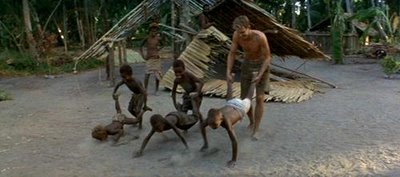
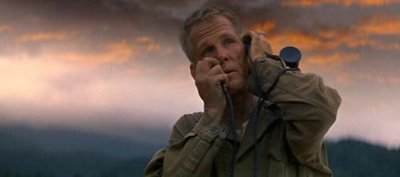



undertow
 "i was thinking about dad. how he spoke to us. like he was afraid. when he looked me in the eye... sometimes i believe he had no idea who i was. or didn't care. who was this kid? how did he spring from me?"
"i was thinking about dad. how he spoke to us. like he was afraid. when he looked me in the eye... sometimes i believe he had no idea who i was. or didn't care. who was this kid? how did he spring from me?"- undertow
written and directed by david gordon green, undertow is a classic morality tale. it's a basic, simple story about how greed is evil, and how destructive greed can be. the movie centers on a family that includes a single father, john, and his two boys, chris and tim. john has taken his children out into isolation, away from most civilization, where they live a pretty secluded life. one day, his brother, deel, comes to visit, fresh from getting out of prison. deel believes that john has some gold coins hidden away that their father had stolen back in his days as a thief, and deel's come to collect his share. when violence finally erupts, the two boys must run for their lives.
the movie takes its time to develop, and there are plenty of moments of long, drawn-out silences. the writing is very passionate and moody, with the tone of the movie being set early on when chris' girlfriend asks to see his knife and says, "can i carve my name into your face?"
david gordon green has a very simple style of writing, and he's definitely influenced by terrence malick, who actually produced this movie. but his style is still his own. the characters also reflect this very simple style, and they seem very hollow sometimes, but they are also very thoughtful as well, with their own philosophies. the boys in this film have nowhere to go, and they are completely lost in terms of who they are and where they need to be. but one thing is for certain: greed has corrupted the family and they must get as far away from it as possible.

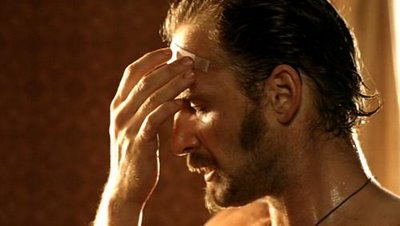
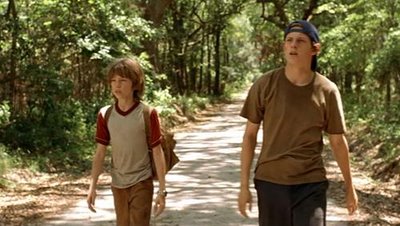
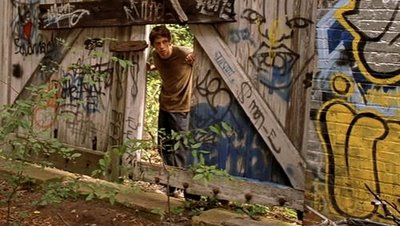
roger dodger
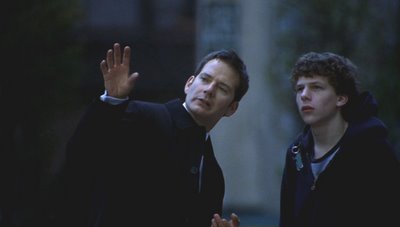 "sex is everywhere, okay?. it is all around us. it's not some distant destination. it's not everest. it is right here. you have to atune yourself to it. you have to bring yourself into alignment. you have to find the zone, nick, okay? do that, and i promise you, a whole world will open up. look at me... i walk around in a state of total receptivity. i'm like a fucking lightning rod."
"sex is everywhere, okay?. it is all around us. it's not some distant destination. it's not everest. it is right here. you have to atune yourself to it. you have to bring yourself into alignment. you have to find the zone, nick, okay? do that, and i promise you, a whole world will open up. look at me... i walk around in a state of total receptivity. i'm like a fucking lightning rod." - roger dodger.
roger dodger is a film about a man named roger who gets a visit from his teenaged nephew, nick, who is looking for help with women. the film is about the night they spend together out on the town, in search of sex.
the film is written extremely well, with some witty banter from the likes of roger, who is a smooth talking ad exectutive who says that in order to sell someone something, you must make them feel bad about themselves, which will then allow you to plug your product as basically a quick fix for their misery. roger talks. a lot. he comes across as shallow and arrogant and misogynistic. his nephew, nick, is a wholesome, good spirited kid who thinks way too much and acts way too little.
the film is a talking movie, in that there is little in the way of action, but the real goods lie in the interaction between roger and nick. the film is incredibly dialogue heavy, but in this case, it's a good thing. they cover topics in the range of alcohol to blow jobs to a man's worth in the world. in the end, roger isn't as crass as he comes across as, and nick isn't as ready for sex as he thinks he is. the writing is very smart and quick, and the movie never feels like it's dragging.
overall, the movie is very real, for guys anyway. i don't know how much women will enjoy the film, but men will find the tips roger gives very familiar. such as using a store window to admire a woman via her reflection, or the differences in lighting and how that can sometimes effect a woman's clothes. not that i personally have ever used such strategies to admire a woman, of course. no, definitely not. because, you know, that would be wrong.
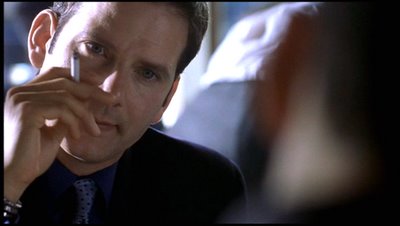
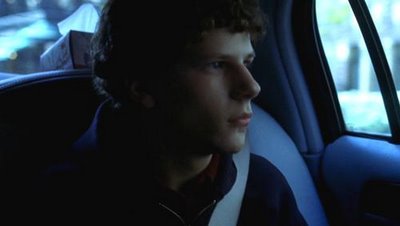
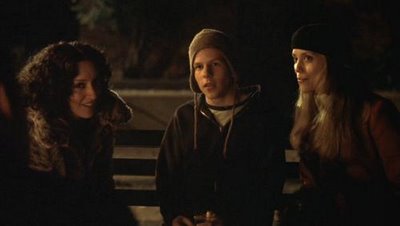
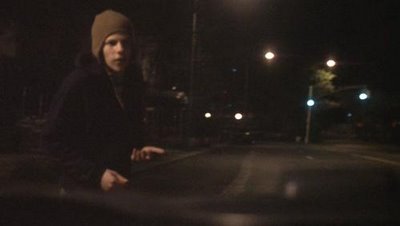
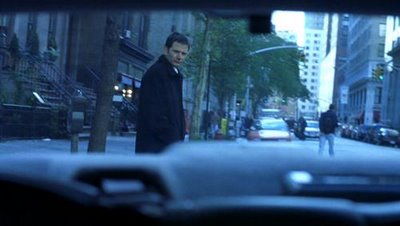
the film is written extremely well, with some witty banter from the likes of roger, who is a smooth talking ad exectutive who says that in order to sell someone something, you must make them feel bad about themselves, which will then allow you to plug your product as basically a quick fix for their misery. roger talks. a lot. he comes across as shallow and arrogant and misogynistic. his nephew, nick, is a wholesome, good spirited kid who thinks way too much and acts way too little.
the film is a talking movie, in that there is little in the way of action, but the real goods lie in the interaction between roger and nick. the film is incredibly dialogue heavy, but in this case, it's a good thing. they cover topics in the range of alcohol to blow jobs to a man's worth in the world. in the end, roger isn't as crass as he comes across as, and nick isn't as ready for sex as he thinks he is. the writing is very smart and quick, and the movie never feels like it's dragging.
overall, the movie is very real, for guys anyway. i don't know how much women will enjoy the film, but men will find the tips roger gives very familiar. such as using a store window to admire a woman via her reflection, or the differences in lighting and how that can sometimes effect a woman's clothes. not that i personally have ever used such strategies to admire a woman, of course. no, definitely not. because, you know, that would be wrong.





+Mini.jpg)
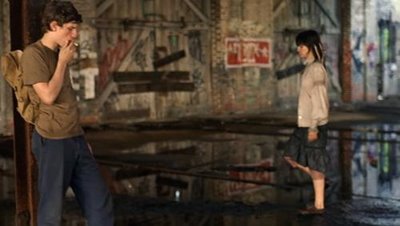


|